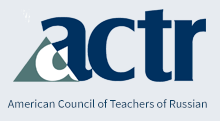Russian Language Journal
Keywords
adoption, Russia, Soviet Union, orphans
Abstract
The wave of adoption from Russia and other countries of the former Soviet Union has brought a large number of incomplete Russian speakers into the United States; over 71,000 orphans from Russia, Ukraine, Kazakhstan, and Belarus have been issued United States entry visas since 1992 (U.S. Department of State 2007 and 2009; Ruggiero 2007). This is part of a larger trend toward international adoption, amounting to several hundred thousand children in the past decades. Children adopted by American families experience a radical reduction in birth language exposure and must quickly acclimate to and become proficient in the language of the adoptive family. This is a uniquely widespread and easily accessible instance of L1 attrition, and a special case of language acquisition; as such, international adoption has seen quite a rich treatment in linguistics literature. The present study considers questions of L1 re‐acquisition, and attempts to contextualize this phenomenon within both the international adoption literature and the incomplete language acquisition or heritage language literature. On the basis of a small case study and the learning outcomes of adopted children at a summer language camp, I point to importance of internationally adopted children as a resource for understanding heritage language, and to their potential role in Russian language programs as heritage-like learners.
Recommended Citation
Lyon, Avram J.
(2009)
"Birth Language Attrition and Reacquisition in Russian Adoptees,"
Russian Language Journal: Vol. 59:
Iss.
1, Article 10.
Available at:
https://scholarsarchive.byu.edu/rlj/vol59/iss1/10

